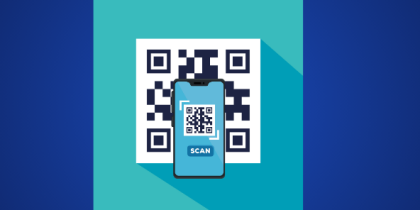Using a VPN is one of the best ways to stay private online, but it can sometimes feel like your battery drains a little faster on mobile. That’s because maintaining an encrypted tunnel, handling constant traffic, and switching between networks all require background processing. This leads to normal battery usage, though some VPNs make it heavier than it needs to be.
The good news? PureVPN uses modern, lightweight technology and built-in features designed to keep you secure without wasting power. In this guide, we’ll break down why VPNs consume battery in the first place and how PureVPN minimizes that impact so you can stay protected longer without sacrificing performance:

Why do VPNs drain the battery?
A VPN creates and maintains an encrypted connection between your device and the VPN server, and that process requires ongoing work in the background. Here are the main reasons VPNs use more battery on mobile devices:
Encryption and decryption require CPU power
Every request your device sends or receives must be encrypted before it leaves your phone and decrypted when it returns. Stronger or older encryption protocols like OpenVPN require more CPU cycles, which directly increases battery consumption.
The VPN tunnel must stay active
When turned on, a VPN maintains a constant connection to the server, even when apps are idle. Keeping this tunnel alive uses battery as your device must send periodic keep-alive packets, monitor the connection status, and re-establish the tunnel if the network changes.
Network switching drains extra power
When you move between Wi-Fi and mobile data, the VPN must renegotiate the connection. These reconnections require new key exchanges, tunnel re-establishment, and multiple handshakes. Each step consumes additional CPU and battery.
Long-distance or high-latency servers increase workload
If a VPN connects to a server far from your location, your device works harder to maintain the encrypted path. This keeps your mobile radio (Wi-Fi or cellular) active for longer periods, which naturally increases battery usage.
Background apps send constant data
Even if you aren’t actively browsing, many apps quietly send analytics, sync files, refresh feeds, or check notifications. When a VPN is active, all that background traffic is still encrypted, adding to CPU usage and power consumption.
Poorly optimized VPN apps increase overhead
Not all VPN apps are equally efficient. Some apps tend to consume more battery because they use older, heavier protocols, lack mobile-optimized code, reconnect too often, or run unnecessary background services.
How PureVPN minimizes battery drain
To keep your device protected without draining power, PureVPN uses technology and features that keep the connection lightweight and efficient. Here’s what makes the difference:
Lightweight modern protocols
PureVPN uses modern, mobile-friendly protocols like WireGuard and IKEv2/IPsec that require far less processing power than older options such as OpenVPN. These protocols handle encryption more efficiently, reducing CPU load on your device and lowering overall battery consumption without compromising security.
Split tunneling
Split tunneling lets you choose which apps send their traffic through the VPN tunnel and which go through your regular internet connection. By encrypting only the apps that need protection, your device processes far less data, lowering CPU usage and reducing strain on both Wi-Fi and cellular radios.
Recommended server selection
The PureVPN app automatically identifies high-speed, reliable servers based on your location and network conditions. A stable server requires fewer reconnections, fewer handshake negotiations, and less background work, all of which contribute to lower battery drain during long sessions.
Regular app updates
Each update to the PureVPN app includes protocol improvements, bug fixes, reduced background activity, and performance optimizations. These incremental enhancements help ensure the app uses as little power as possible, especially on newer versions of Android and iOS.
Nearby server options
Connecting to a server that’s physically close reduces latency and cuts down the amount of work your device needs to keep the encrypted tunnel stable. PureVPN offers a wide range of nearby locations, helping your device maintain a fast, low-effort connection that consumes less battery over time.
Router setup support
PureVPN also supports installation on compatible routers. When the VPN runs on your router, your phone no longer needs to maintain an encrypted tunnel itself. The router handles all encryption and decryption, reducing on-device CPU usage and lowering battery consumption whenever you’re connected to Wi-Fi.
Addition tips to reduce VPN battery usage
Even with an efficient VPN, a few simple habits can further extend your battery life while staying protected:
- Use a nearby server: Always connect to the closest available VPN location. Shorter distances mean faster routing, lower latency, and less time your phone spends working to maintain the connection.
- Prefer Wi-Fi over mobile data: Cellular radios drain more power than Wi-Fi, especially when encrypted traffic is involved. Whenever possible, stay connected to a stable Wi-Fi network for less battery usage.
- Avoid unnecessary heavy apps: Apps that constantly sync data in the background consume more battery when routed through a VPN. Disable background activity for apps you don’t need running 24/7.
- Use split tunneling when appropriate: If certain apps don’t require encryption (like streaming local content), route them outside the VPN tunnel. This reduces the amount of data your device has to encrypt.
- Disable the VPN when you don’t need it: When you’re offline, in airplane mode, or simply not using the internet, you’re better off disabling the VPN to prevent unnecessary background activity.
- Keep your device updated: Newer Android and iOS versions improve network handling and power management, so make sure you update when available. Plus, they run VPNs more efficiently and drain less battery.
- Close unused apps: Open but idle apps may still send network requests that keep getting encrypted in the background. Closing them reduces both data processing and battery use.
Final word
A VPN will always use some battery, but it doesn’t have to drain it quickly. By combining efficient protocols and features like Split Tunneling and Recommend Server, PureVPN keeps power usage low without compromising security. You stay protected, connected, and battery-efficient, which is exactly how a modern mobile VPN should work.
Frequently asked questions
A VPN drains more battery because your device has to encrypt and decrypt all outgoing and incoming data. It also keeps a secure tunnel active in the background, which requires periodic communication with the server. The farther the server or the heavier the protocol, the more battery the phone uses to maintain the connection.
Android allows more apps to run background network activity, meaning there’s more data for the VPN to encrypt. Android devices also vary widely in hardware and power optimization, so older or budget phones may use more battery when handling encryption compared to newer models.
Yes, a VPN uses some battery because it adds encryption work and keeps a secure connection active. How much it affects your battery depends on the protocol used, your distance from the server, and how much background traffic your apps generate. A well-optimized VPN noticeably reduces this impact.
Some VPNs use older, CPU-heavy protocols, reconnect too often, or lack mobile-optimized code, all of which increase battery usage. Inefficient routing, poor server stability, and unnecessary background services can also force your device to work harder, resulting in faster battery drain.
Yes, but the effect is usually smaller than on mobile devices because laptops have stronger CPUs and larger batteries. The VPN still performs encryption and keeps the tunnel active, but desktop-class hardware handles this workload more efficiently, so battery impact is generally minimal.








